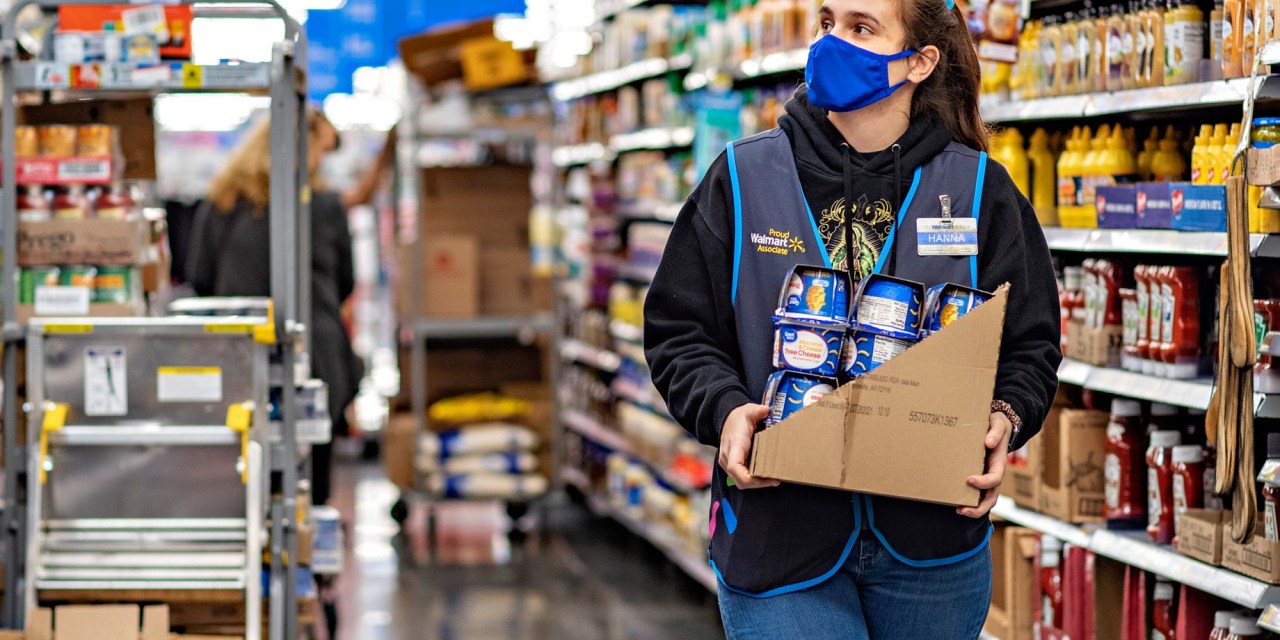Why grocers are wading into 30-minute convenience delivery

Grocers are taking inspiration from convenience stores in a quest to be more accessible to consumers.
To do so, several retailers are setting up virtual convenience stores complete with a quick-delivery option. Schnucks began offering 30-minute delivery on a variety of convenience items, such as household essentials, alcohol and snacks. Similarly, Walmart Canada piloted a 30-minute convenience delivery service for customers in the Greater Toronto Area back in June.
Larger retailers are learning a thing or two about c-stores as consumers demand a faster and more streamlined way to obtain essential goods. Experts say retailers are offering these ultra-fast delivery services on certain convenience items to gain more market share. This would also be a way for retailers to win some of the small basket trips consumers often go to convenience stores for. Grocers are getting into convenience delivery during a time when players like Gopuff and Gorillas have been facing major headwinds that forced them to conduct mass layoffs.
Learning from convenience stores
Shoppers are leaning towards convenient shopping options now as many continue to spend more time at home — a behavior that convenience stores have benefitted from over the last two years. The average in-store basket size at convenience stores rose 6.3% in 2021 and 22.4% over the past two years, according to the National Association of Convenience Stores. C-stores’ prepared food category brought in an average of $302,346 in sales per store in 2021.
Rachel Dalton, head of retail insights at Kantar, said that consumers’ habit of stopping by convenience stores for quick meals or other basic items means that grocers are missing out on this shopping opportunity.
“Shoppers now have more expectations for greater levels of speed and just more convenience overall,” Dalton said. “It’s a big opportunity for that more traditional convenience store channel. But that takes [share] away from grocery stores.”
Retailers are taking notes and are bolstering their convenience propositions. Schnucks said that its new convenience offering in partnership with Instacart, called Schnucks Now, is ideal for smaller orders and has a $10 minimum purchase. Schnucks had a revenue of $2.9 billion in 2021, according to the St. Louis Business Journal.
Much like Schnucks, Walmart has also partnered with Instacart for this service. The service is available for nearly 4,000 items at Walmart. Meanwhile, Albertsons teamed up with DoorDash for its express 30-minute delivery service, which is available at over 330 Albertsons banner locations. In the announcement, DoorDash said this service is positioned to fill in missing ingredients or deliver the snacks shoppers are craving — transactions that convenience stores have benefitted from in the past.
Ad position: web_incontent_pos1
“People have many different shopping needs, often in the same week, and the goal of Instacart’s technology and fulfillment solutions is to help retailers best serve their customers, whether that’s through delivery in minutes, ‘No Rush’ next day delivery, or pickup,” Instacart told Modern Retail via email. The company added that its “convenience offering has grown significantly in the last year as retailers look to serve their customers in all the ways they want to shop.”
Ben Wynkoop, global industry strategist for grocery and convenience at Blue Yonder, said that retailers are still dependent on third-party companies like Instacart and DoorDash in order to implement this convenience offering. He said that means shoppers won’t have the access to in-store coupons, sales and promotions as is the case with Schnucks.
Still, it seems like grocery stores are looking to be the go-to option for last-minute trips. Fuad Hannon, DoorDash’s vice president of new verticals, told Grocery Dive in February that when it piloted its program with Albertson’s 44% of orders were made 4 p.m. and 9 p.m., which indicates that consumers are using the service for last-minute ingredients or a fill-in order.
Rapid-delivery companies like Gopuff and Gorillas were also vying for these last-minute purchases and nabbed large funding for their propositions. Last year, Axios reported that Gopuff raised $1.5 billion, while Gorillas secured $290 million in Series B funding. But just this year, Gopuff and Gorillas laid off 10% and about 300 of their workers, respectively, as they look to cut costs.
As these rapid delivery firms scale back, grocers still see an opportunity to apply this ultra-fast fulfillment service to their businesses. “Grocery is much more focused on winning the in-between stock-up trips,” Wynkoop said. “If you think about the way shoppers shop groceries historically, they do a pantry loading trip once a week or twice once every two weeks… and then in between they do a bunch of quick trips of $35 to $50.”
Ad position: web_incontent_pos2
Kantar’s Dalton said she expects grocers to broaden their assortment to include items that fall within the convenience space. Already, some grocers have been experimenting with convenience-focused formats. Meijer, for example, plans to open two small-format stores early next year, designed for consumers looking for essential items and last-minute fill-in shopping trips. Meanwhile, Schnucks announced the opening of Schnucks Express in August, which is significantly smaller than its regular location and bares some resemblance to c-stores.
“I think we’re gonna see a lot more evolution in this space,” Dalton said. “It is a real opportunity to continue to elevate the meaning of convenience for consumers.”

